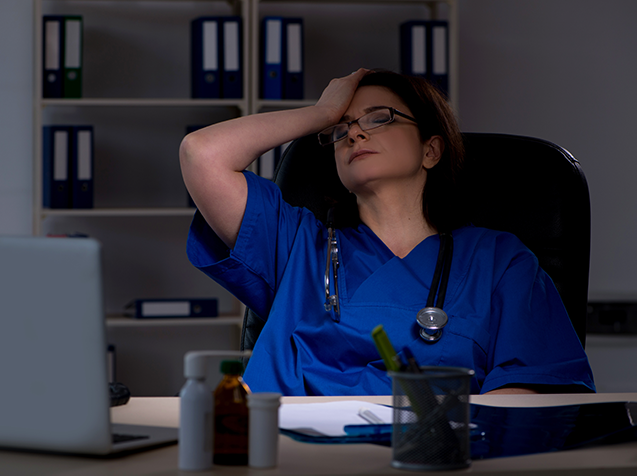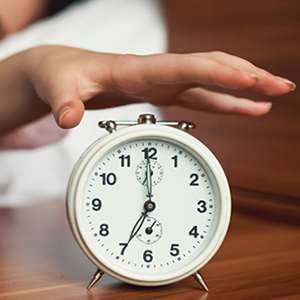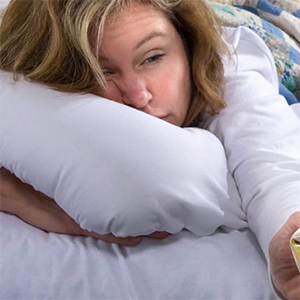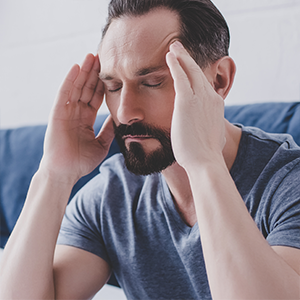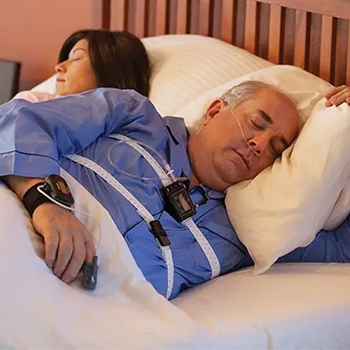Workplace & Commercial Impacts of Poor Sleep
If you are suffering the symptoms of fatigue or a sleep disorder, your job and the lives of those around you could be at risk!
Sleep deprivation has shown to have a massive impact on physical performance, your ability to focus, control your mood and operate effectively in the workplace.
It is important to ensure you are always getting an adequate amount of good quality sleep, for adults it is 7-9 hours per night. Dr Matthew Walker, Professor of Neuroscience and Psychology states that, "Once you get below 7 hours of sleep, we can measure objective impairments in your body"2.
Good sleep health is essential for workers to be productive and alert in the workplace, as well as to maintain their long-term health and wellbeing.
Many Australian workers are sleepy at work, sleepy on the roads on their commute to work, and may experience errors in the workplace or may miss work because they are too tired. This comes at a cost to employers, employees, and the safety of the broader community.3
In 2016-17 it was estimated that 7.4 milliion Australian adults did not regularly get the sleep they needed and the total cost of inadequate sleep in Australia was estimated to be $66.3 billion, comprising $26.2 billion in financial costs and $40.1 billion in the loss of wellbeing. This equates to approximately $9000 per person affected in both financial and wellbeing costs.4
Inadequate sleep can have a substantial impact on you ability to engage and attend work.
Impacts on work include reduced chance of employment, early retirement, or exit from the workforce due to premature mortality. Therefore, inadequate sleep may impose a range of productivity costs which affect not only you, but your employer and the government.
Learn more about Sleep Apnea Book a Sleep Study Now
In Australia in 2016-17 there were 3017 road or workplace deaths linked to sleep deprivation4
Up to 38% of Australian truck drivers have Obstructive Sleep Apnoea’ (OSA), which has been associated with vehicle accidents5
Tiredness has been determined as a contributing factor to nuclear meltdowns, space shuttle accidents, and major oil spills6
Being tired has the same effect as being drunk, affecting motor function, memory, decision-making and problem-solving to name a few6
Workplace Health & Safety
Fatigue and sleep deprivation reduces your ability to perform work safely and effectively. It reduces your alertness which may lead to errors and an increase in incidents and injuries.
There is up to a 50% increased risk of occupational injury, absenteeism and error or safety violation attributed to fatigue in employees with a sleep disorder, with up to 45% of individuals in safety sensitive occupations such as law enforcement and commercial transportation in this category.7
Occupations with high risk of fatigue:
- shift workers
- night workers
- fly-in, fly-out workers (FIFO)
- drive in, drive out (DIDO)
- on-call and call-back workers
Commercial Drivers
Research carried out in Australia has found driving while sleepy can be as dangerous as driving under the influence of alcohol.
As a result, there are important legal requirements for both private and commercial drivers to avoid driving tired and to ensure any condition which affects your ability to drive is properly treated and kept under review by a qualified Sleep Specialist.
When your job is driving, fatigue is not just a major risk for you, it also impacts the safety of other road users, your employer and the wider community.
According to Worksafe, driver fatigue is a major safety hazard for all drivers. Fatigue crashes tend to be severe with little or no braking or avoidance action taken. The risk of death or serious injury to a driver and passenger or the occupants of other vehicles in a fatigue related crash is very high. Learn about Jet's Law.
Causes of Driver Fatigue:
- Lack of sleep or poor quality sleep
- Extended driving shifts or skipping breaks and rest stops
- Driving during times you would normally be asleep (12am-6am)
- A sleep disorder, such as Sleep Apnea
- Or simply just ignoring the signs that you are tired

Reduction in Performance
Approximately 17% of people with a sleep problem reported taking 1-2 days off work each month due to that problem, while around 3.5% reported taking 3 or more days off work per month.5
Busy professionals experience many pressures that impede their ability to get a good night’s sleep. Work that involves long hours, working during the night, and/or a rotating schedule may impact on sleep quality and duration, which may then negatively affect work performance.
When you sleep, your brain consolidates the previous day’s experiences, improves your memory, and triggers hormones regulating energy, mood, and mental sharpness.
Getting the recommended amount of sleep is an important factor in effective performance including:
- Sharper focus and information retention
- Enhanced problem-solving ability
- Increased ability to stay calm and make sound decisions under pressure
- Higher emotional intelligence and ability to read complex situations
Shift Workers
The Australian Capital Territory (ACT) Government estimated that ‘night shift workers get on average 25 to 33 per cent less sleep than day or evening shift workers.’ 8
The Sleep Health Foundation stated that the accident rate of shift workers is double that of non-shift workers in Australia, and that it ‘is highly likely that much of this additional risk is sleep-related.’9
As well as having an increased risk of accidents or errors while at work, the Woolcock Institute of Medical Research stated that night shift workers may be at heightened risk of vehicle accidents when driving home from a shift, due to fatigue.10
The Charles Perkins Centre at the University of Sydney outlined potential links between shift work and cancer and stated that, Night shift work, which disrupts the timing of sleep, was classified by the World Health Organisation as a probable carcinogen in 2007. Risk of breast and prostate cancer have been specifically linked to shift work.11
Dr Ian Dunican stated that ‘shift work leads to weight gain, which can lead to sleep apnoea.’12 Austin Health similarly highlighted the ‘two-way influence’ between sleep loss and obesity, as ‘impaired sleep causes obesity, but obesity causes sleep apnoea.’13

Is Your Workplace Performance Putting Your Job at Risk?
Our team is here to help you get your life back on track and start reaching your goals. If you are feeling the discomfort of sleep deprivation or sleep apnea it could be time you talk to your GP and get tested today!
Download GP Referral Book an Appointment
References
1. Sleep Health Foundation 2016, 2016 Sleep Health Survey of Australian Adults, industry report.
2. Matthew Walker, (2018), "Why We Sleep: The New Science of Sleep and Dreams"
3. Appleton Institute, Submission 88, p. 1.
4. Sleep Health Foundation, Asleep on the Job: Costs of Inadequate Sleep in Australia, 2017
5. European Society, Science Daily, Poor Sleep Associated with Increased Risk of Heart Attack, Stroke.
6. Hult International Business School (blog) "The Business of Sleep"
7.Cooperative Research Centre for Alertness, Safety and Productivity (Alertness CRC), Submission 92, p. 1.
8. Australian Capital Territory (ACT) Government, Submission 126, p. 1.
9. Sleep Health Foundation, Submission 54, p. 8.
10. Professor Ronald Grunstein, Head, Sleep and Circadian Research Group, Woolcock Institute of Medical Research and Central Clinical School, University of Sydney, Official Committee Hansard, Canberra, 11 February 2019, p. 17.
11. Charles Perkins Centre, University of Sydney, Submission 46, p. 9.
12. Dr Ian Dunican, Director/Principal Consultant, Melius Consulting, Official Committee Hansard, Perth, 29 January 2019, p. 5.
13. Associate Professor Mark Howard, Director, Victorian Respiratory Support Service, Austin Health, Official Committee Hansard, Melbourne, 6 February 2019, p. 20.

Your Sleep Health Journey





